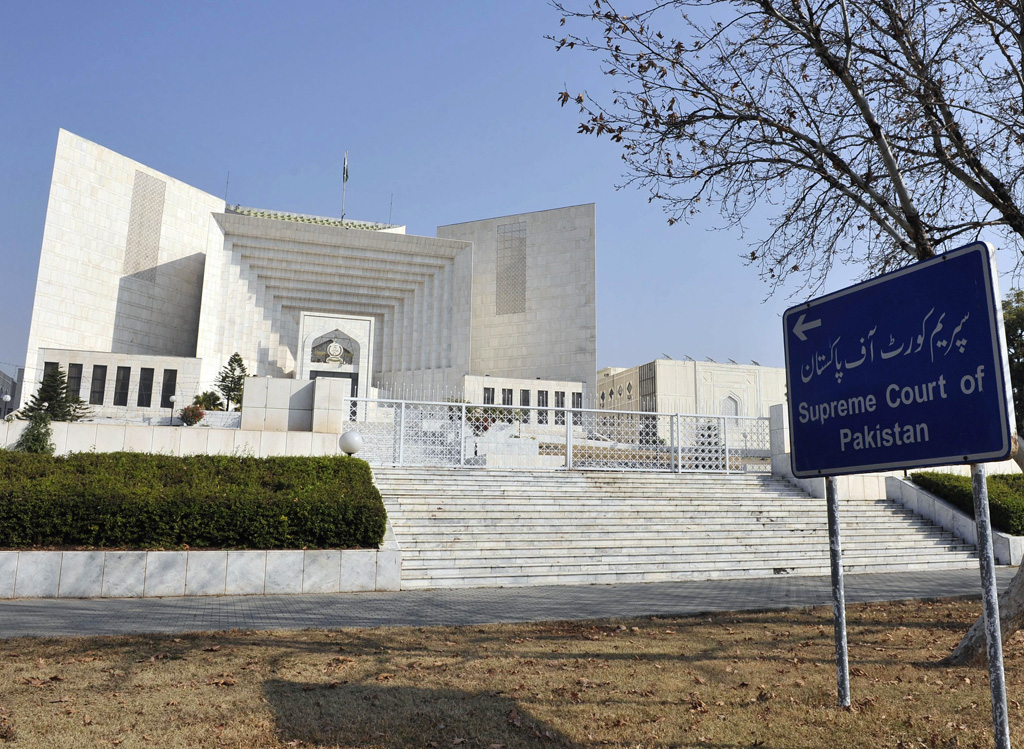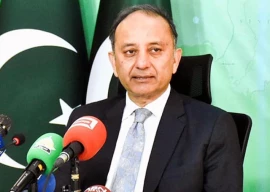
A three-judge bench headed by Chief Justice Nasirul Mulk is hearing a constitutional petition also asked the IHC administration to provide complete details pertaining to the appointments and absorption and adjourned hearing till January 26.
Deputy Attorney General Sohail Mahmood told the bench the petition is maintainable.
The petition has been filed by advocate Muhammad Akram through his counsel Arif Chaudhry, making the IHC registrar, deputy registrar Idrees Khan Kasi and 73 other officials as respondents.
The petitioner has requested the court to declare the appointments made after the re-establishment of IHC in 2010 illegal and sought legal proceedings against those involved in the appointments.
The Accountant General of Pakistan Revenue (AGPR) in its report has stated that all the appointments in the IHC, whether through fresh recruitment or on deputation, had been made in violation of rules and criteria.
During the scrutiny of personnel files, the auditors observed that “not a single appointment has been made on merit”, according to the report.
A number of appointments have been made by relaxing rules, including absorption of officers in higher scales than they were holding in their parent departments without any justification, it says.
“Generally the absorption is made in the same scale, or in some special case maximum one stage above only,” notes the report.
The procedure of filling vacant posts through open competition after conducting test/interviews, has also been “totally ignored in all the appointments,” adds the report.
“It is more alarming that even after advertising the posts of non-gazetted cadres, they were still filled by relaxing the rules and the applicants who had applied against the said posts were deprived of their fundamental right to compete for getting the job on merit,” says the report.
“No justification or exigency existed as already a reasonable number of employees (over 200) had been working in the court and there was no hurdle in adopting proper procedure to fill up the vacant posts.
“But it appears that the intention was not there and nepotism/favouritism was allowed to prevail. Even in case of any exigency, the post could have been filled temporarily (not more than for a period of six months) and then regular appointment could have been made by adopting the proper procedure.”
The report also observed that 11 deputationists had been absorbed in violation of the rules. They were earlier working in the Lahore High Court, Sindh High Court, Pakistan Broadcasting Corporation or Balochistan Assembly, and were given more than two steps promotion.
Perhaps the luckiest among the 11 was Shakeel Raza who was working in the Balochistan Assembly in BPS-7 and was absorbed in the IHC in BPS-17.
Anther lucky deputationist was Aamir Majeed who came from Punjab University where he was working as stenographer in BPS-12 and was placed in IHC in BPS-17. Saqib Shiraz was working in the PBC in SPS-4 but joined the IHC in BPS-18 as assistant registrar.
Appointment of Usman Mir as assistant registrar in BPS-18 was strange. Before joining the IHC on deputation he was working in a private bank.
The son of a Balochistan-based lawyer, Mr Mir’s sister, Faiza Mir, is also employed in BPS-17 in the IHC. His brother-in-law, Tahir Bokhari, is serving as superintendent to the session judge (East) of Islamabad.
The report observed that the deputationists’ absorption deprived court employees of their legitimate right of promotion and recommended an inquiry.
Published in The Express Tribune, January 17th, 2015.



1732503274-0/Untitled-design-(43)1732503274-0-165x106.webp)
1732501636-0/Untitled-design-(42)1732501636-0-165x106.webp)
1732513395-0/Copy-of-Untitled-(75)1732513395-0-270x192.webp)











COMMENTS
Comments are moderated and generally will be posted if they are on-topic and not abusive.
For more information, please see our Comments FAQ